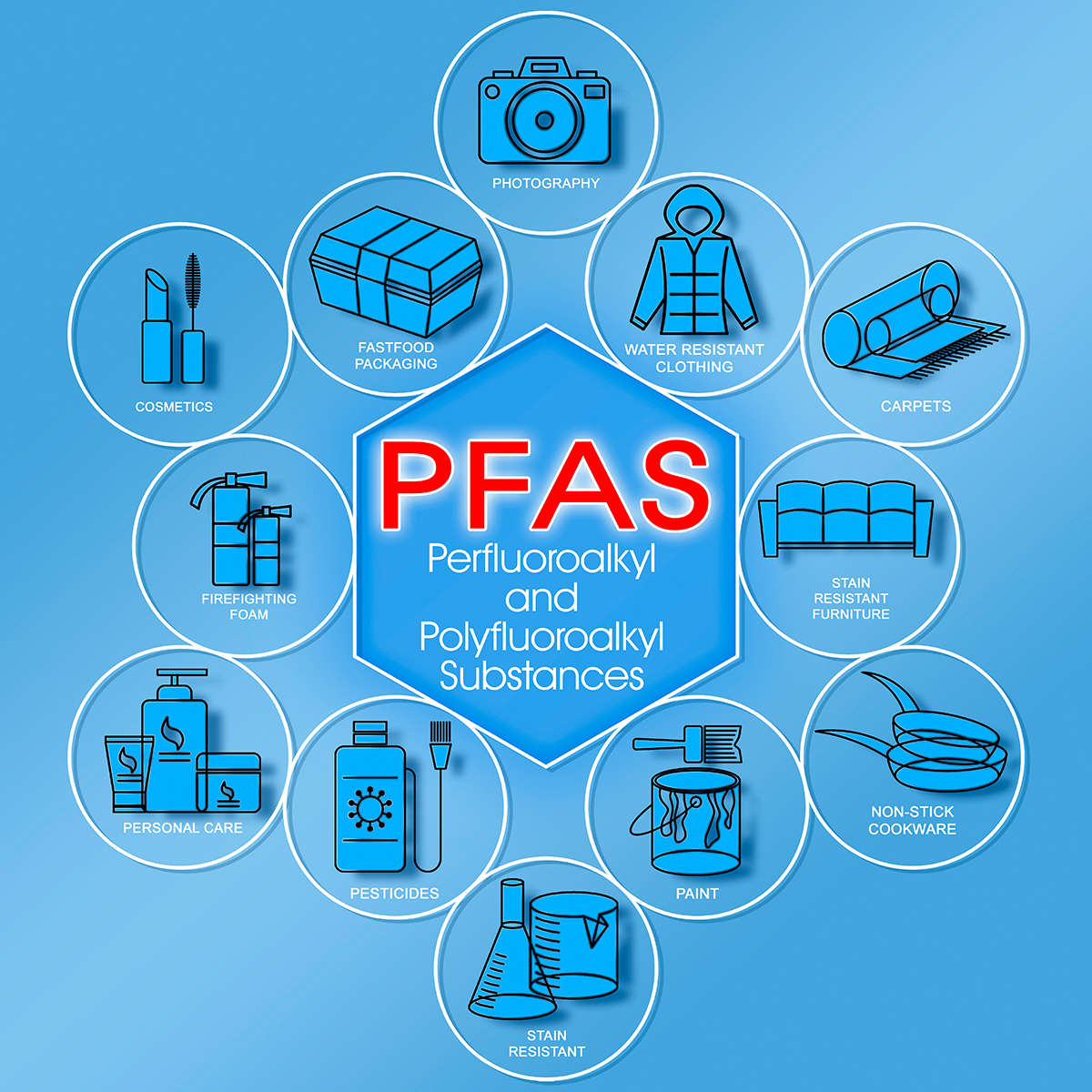-
Property & Casualty
Property & Casualty Overview

Property & Casualty
We offer a full range of reinsurance products and the expertise of our talented reinsurance team.
Trending Topics
Publication
Production of Lithium-Ion Batteries
Publication
PFAS – Rougher Waters Ahead?
Publication
Generative Artificial Intelligence in Insurance – Three Lessons for Transformation from Past Arrivals of General-Purpose Technologies
Publication
Did you Know? A Brief Reflection on La Niña and El Niño
Publication
Time to Limit the Risk of Cyber War in Property (Re)insurance
Publication
Pedestrian Fatalities Are on the Rise. How Do We Fix That? -
Life & Health
Life & Health Overview

Life & Health
We offer a full range of reinsurance products and the expertise of our talented reinsurance team.
Training & Education
Publication
When Actuaries Meet Claims Managers – Data-Driven Disability Claims Review
Publication
Chronic Pain and the Role of Insurers – A Multifactorial Perspective on Causes, Therapies and Prognosis
Publication
Fasting – A Tradition Across Civilizations
Publication
Alzheimer’s Disease Overview – Detection and New Treatments
Publication
Simplicity, Interpretability, and Effective Variable Selection with LASSO Regression Moving The Dial On Mental Health
Moving The Dial On Mental Health -
Knowledge Center
Knowledge Center Overview

Knowledge Center
Our global experts share their insights on insurance industry topics.
Trending Topics -
About Us
About Us OverviewCorporate Information

Meet Gen Re
Gen Re delivers reinsurance solutions to the Life & Health and Property & Casualty insurance industries.
- Careers Careers
Class Actions in the Netherlands – (Not) A Role Model for Europe?

November 10, 2022
Nina Dahm-Loraing,
Alexander Eistert
Region: Europe
English
Deutsch
The Netherlands is the first EU country to have an infrastructure for class actions under the EU Collective Redress Directive. On 1 November 2022, the Dutch Senate adopted the bill to implement the Directive. EU Directive 2020/1828 on class actions – also known as representative actions – for the protection of the collective interests of consumers, which came into force in December 2020, must be transposed into national law by member states by 25 December 2022. The new regulations must be applied from 25 June 2023. The Dutch Implementation Act (only in Dutch) is expected to enter into force on 25 June 2023.1
The aim of the EU Directive on representative actions is to strengthen consumer protection and further harmonise the internal market. It also aims to combat anti-competitive behaviour of companies. In line with the principle of procedural autonomy, the Directive gives member states considerable leeway with regard to implementation. It will be interesting to see how the individual member states make use of this leeway and how far they go beyond the minimum requirements of the Directive.
While the German Federal Ministry of Justice and Consumer Protection (the BMJ) presented a draft bill at the end of September 2022, which is still being discussed, the Netherlands has already implemented the Directive – and is the only country in the EU to do it so far.
This article takes a look at the new law in the Netherlands and early experiences with it.
WAMCA
In 2019, the Dutch parliament passed a law on representative actions, which entered into force on 1 January 2020: Wet afwikkeling massaschade in collectieve actie (WAMCA – the Dutch Act on the Settlement of Mass Damages Claims in Collective Actions).2 The WAMCA already included most of the Directive’s requirements. The Implementation Act only changes the WAMCA as far as necessary to comply with the Directive and – with a few exceptions – only for collective actions that fall under the Directive’s scope.
The biggest game-changer is the possibility of directly claiming damages as part of a representative action. The previous instrument for collective redress, the Wet collectieve afwikkeling massaschade (WCAM3 – the Dutch Act on the Collective Settlement of Mass Damages) from 2005, provided for the court first to establish an unlawful business practice and the parties then to conclude a collective settlement before the Amsterdam Court of Appeal in a second phase.
Scope of application
The EU Directive limits the scope of the representative action proceedings to certain consumer protection provisions of EU law (including national implementation of the laws) listed in Annex 1 of the Directive.4 The Netherlands goes beyond that. The scope of application has been extended to all areas of law and thus includes, for example, actions relating to climate protection and human rights violations.
Among other examples, this made it possible for the District Court of The Hague to rule against Royal Dutch Shell Plc in a class action lawsuit relating to climate protection filed by a nongovernmental organisation (Vereniging Milieudefensie et al) in May 2021, attracting international attention.5 The court ordered that the Shell Group must reduce the net carbon dioxide emissions from its activities by 45% by the end of 2030; these reduction targets include emissions from its suppliers and customers.
In addition to the material scope of application, the personal scope of application of the Directive which, according to recital 15 and Article 2, paragraph 1, of the Directive, explicitly concerns only consumers, was extended to businesses by the Dutch legislator.
Right to bring proceedings
The EU legislator has opted for a system of representative action. This means that only qualified entities (i.e. associations or public bodies) designated by the member states are entitled to bring proceedings.
The Directive distinguishes between domestic and cross-border representative actions. The most significant impact of this distinction relates to the different conditions imposed on the qualified entity, i.e. the entities authorised to bring proceedings.
In the case of domestic proceedings, i.e. representative actions brought by a qualified entity in the member state in which the qualified entity was designated, member states may establish their own criteria (Article 3[6] of the Directive). Ad hoc designations are also permissible, i.e. associations that are established only on the occasion of and exclusively for a specific mass claim and only for its settlement. The Netherlands has made use of this possibility.
In the case of representative actions outside the home country, known as cross-border representative actions, qualified entities are entitled to bring proceedings only if they meet certain criteria (Article 3[7] of the Directive). The requirements for the designation of qualified bodies for cross-border representative actions are fully harmonised (Article 4, paragraph 3, of the Directive).
The qualified entity meets more stringent criteria in these cases. It must:
- Have been demonstrably active for 12 months in protecting the interests of consumers;
- Be of a non-profit nature;
- Not pursue a profit-making purpose; and
- Be independent of third parties, i.e. not under the influence of persons who have a financial interest in bringing a representative action lawsuit.
How can consumers participate in a representative action?
One of the key issues in collective redress is how consumers can participate. What do they have to do to be part of the representative action? A distinction must be made here between the opt-in and opt-out models. In the case of an opt-in model, the consumer must explicitly join the action. In the case of an opt-out model, consumers are automatically part of the action, provided they are affected by the facts in question and do not expressly oppose their participation in the action.
The Directive allows member states to choose whether to provide for the opt-in model, the opt-out model, or a combination of the two. The timing of a consumer taking part may also vary from one member state to another. Thus, recital 47 of the Directive provides for participation after the redress measure is issued. The Directive requires an opt-in only for non-resident consumers.
The Netherlands has chosen a plaintiff-friendly opt-out model for those who are domiciled in the Netherlands, with the consequence that the number of consumers involved will be greater and thus the amounts in dispute or damages for the defendant companies could be higher.
Litigation funding
Given the complexity and scope of representative actions, they can be costly and risky. In the case of lengthy representative actions, the plaintiff can easily incur costs amounting to millions. In order to compensate for this cost risk and improve access to justice, in particular in the case of dispersed damages, the Directive allows qualified entities to receive third-party financing under certain conditions (Article 10 of the Directive).
The Dutch legislature allows third-party financing under the conditions set out in the Directive – in particular, conflicts of interest must be avoided and financiers must not have any influence over the procedure.
As third-party financing was allowed even before WAMCA came into force, the Netherlands has been attractive to litigation funders for several years. Currently, it is estimated that around 30 litigation funders are active in the financing of representative actions – and the number is increasing.
There has also been an increase in the number of U.S. (plaintiff) law firms, such as Scott + Scott and Hausfeld, opening offices in the Netherlands. In general, the market for third-party financing of litigation is expected to expand in the coming years. The current EU market was estimated at EUR 1 billion in March 2021 and is expected to grow to at least EUR 1.6 billion over the next five years.6
Central public register
With the WAMCA coming into force, a central register of representative action proceedings was established in which all pending representative action lawsuits are registered.7 Between February 2020 and October 2022, 54 actions were registered, including international ones. It should be noted that 25 of the 39 representative actions registered in 2021 did not claim damages.
The types of representative action registered this year (2022) illustrate the range of legal areas covered by the new law on representative action:
- Public interest/human rights actions against the Dutch state for discrimination (four cases)
- Actions for infringement of intellectual property rights (four cases)
- Actions to enforce consumer rights (diesel actions) (three cases)
- Actions for breaches of data protection/GDPR on behalf of consumers (two cases: Oracle and Salesforce)
- Actions relating to collective labour laws (one case)
In an emerging trend in recent years, there has been an increase in actions relating to competition law and securities disputes. Examples concerning competition law include antitrust actions in the markets for gas-insulated switchgears, prestressed steel, air freight, hydrogen peroxide, lifts and escalators, sodium chlorate, paraffin wax and lorries.
Another trend under the WAMCA are actions which, according to Article 3:305a, paragraph 6, of the Dutch Civil Code, pursue an idealistic purpose and do not target financial compensation. These actions are subject to less stringent admissibility requirements and include the aforementioned actions relating to discrimination and infringement of intellectual property rights.
To date, a number of representative actions have been targeted solely at damages. These include the representative action against Fortis/Ageas, which provided investors with compensation totalling approximately EUR 1.3 billion after reaching a settlement in July 2018, as well as (still pending) lawsuits against Volkswagen, Mercedes, Fiat Chrysler, Peugeot and Citroën in Dieselgate scandal.
Compared to other member states where collective redress mechanisms exist, the number of representative actions in the Netherlands is significantly higher, but actions are rising steadily in these countries. Accordingly, the litigation risks for companies and the costs for insurers increase.
Conclusion
As the WAMCA has been in force only since 2020 and many proceedings are still pending, it is not yet possible to assess the extent to which the new instrument will fulfil the expectations associated with it and how it will affect consumers, companies and insurers. It remains to be seen whether conditions for collective enforcement and access to justice will improve.
The WAMCA provides for a mandatory settlement phase so that as many proceedings as possible can be brought to an end by a settlement, which then also leads to legal certainty for the defendant company. On the other hand, given the costs, negative publicity and time involved in defending against a representative action, companies are under considerable pressure to settle even if the claim brought is difficult to enforce in substantive terms.
In view of the existing Dutch infrastructure for class actions – comprising offices of international litigation funders and US plaintiff firms – the liberal attitude of the Dutch courts (with the possibility to conduct proceedings in English) and the balanced new regime for representative actions with the facilitated admissibility rule for non-material claims, a further increase in representative actions can be expected in the coming years.
This could make the Netherlands a preferred place of jurisdiction for EU representative actions. It remains to be seen how and with what effect other countries will implement the Directive.






